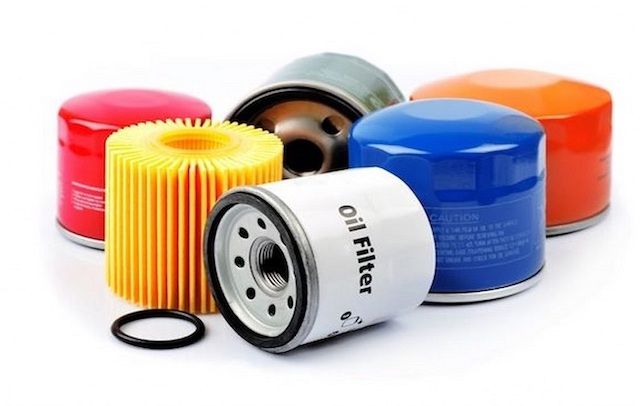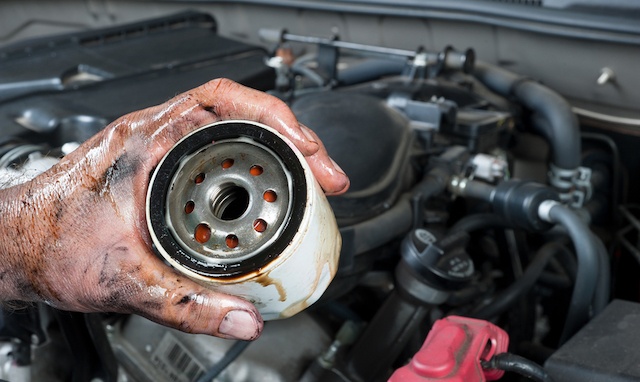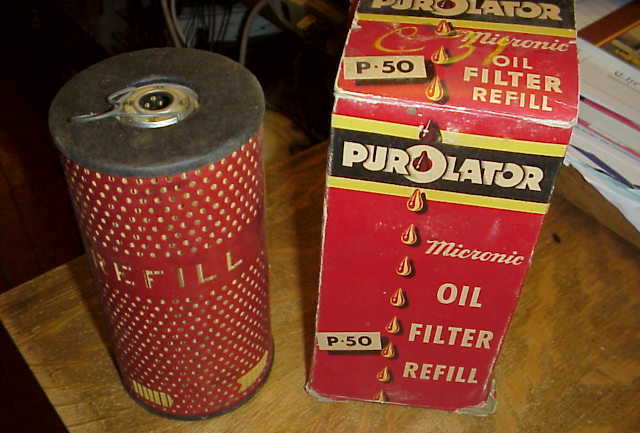A Historical Reference Guide To The Oil Filter
As long as automakers keep putting internal combustion engines into cars, oil filters will always be necessary. As a car owner, it pays to know a thing or two about oil filters. We’ll talk about the history of oil filters, and how oil filters evolved over time.
When Were Oil Filters Invented?

Oil filters were invented in 1923. Before then, cars either:
- Didn’t use any oil filters
- Used a metal screen that didn’t work very well
In 1923, Ernest Sweetland and George Greenhalgh invented the oil filter. At that time, the oil filter wasn’t what we know it as today. It was a a cartridge-style filter mounted inside a steel canister. The cartridge had to be replaced from time to time.
Most cars today use spin-on oil filter. It was invented in 1954. It quickly became popular because:
- It wasn’t as messy as the cartridge-style filter.
- It was much quicker to replace.
When Did Oil Filters Become Mainstream?

Oil filters may have been around since 1923, but they didn’t become mainstream in cars until the 1950s. Some automobiles, such as the Volkswagen Beetle, didn’t start using oil filters until the 1970s. They finally started using oil filters because:
- Oil change intervals became longer (the longer the oil change interval, the dirtier the oil becomes over time)
- Engine build tolerances became tighter
- Engines became faster revving
So basically, oil filters became necessary in the 1970s. By the time the 1970s rolled around, spin-on full-flow oil filters were common on:
- All US engine designs
- Most European engine designs
- Most Japanese engine designs
Today, nearly all automotive internal combustion engines use an oil filter.
How Oil Filters Have Changed Over The Last 50 Years

Oil filters have been standard on internal combustion engines for half a century now. Have they even changed over time? Absolutely. Oil change intervals became longer, so oil filter manufacturers had to find ways to make their oil filters last longer. For that reason, oil filters have never stopped evolving. Here are a few ways oil filters have improved over the years:
1. The Filter Media Keeps Changing Over The Years
The filter media has changed a lot in the last 50 years. The early filters used cloth as the filter media material. In the 1940s, manufacturers switched to a paper element. That evolved into a mix of paper and synthetic fibers. Now, some filters are made from steel mesh.
Even though oil filter media has evolved a lot over the years, it’s still not perfect today. For example, some oil filters are made of a blend of paper and fiberglass. That material is easy to tear off. If that happens, the material will contaminate the oil, and can clog oil passageways. This will damage components inside the engine.
2. Oil Filters Have Bypass Valves And Anti-Drain Back Valves Now
Oil filters used to have a simple design. They were just a metal container with filter material inside. Now, a modern oil filter has two addtional important parts:
- A bypass valve
- An anti-drain back valve
When the oil filter media gets too clogged up, the bypass valve allows the dirty oil to pass through to the engine. This is because dirty oil is better than no oil for the engine. An anti-drain back valve prevents the oil from draining out of the filter when the engine is off. This helps oil flow to where it’s needed faster once you turn the engine on. Without the anti-drainback valve, the oil filter would take a couple seconds to fill when you start the engine, and critical components would be without oil for that period of time.
3. Some Oil Filters Contain Magnets Now
Sometimes tiny metal particles will end up in the motor oil. It happens when two metal parts grind against each other without enough lubrication. Oil that’s contaminated with metal particles will ruin the engine. Regular filter media can’t catch these very small metal particles.
That’s why some modern oil filters contain magnets. These magnets collect the metal particles in the oil. Regular disposable oil filters don’t have magnets, though. But some high-end reusable oil filters do.
A Lifetime Oil Filter Will Save You Money In The Long Run

Since oil filters keep evolving, they’re becoming more and more expensive. Your vehicle will use many oil filters over time, so the costs add up.
Stop worrying about ever growing maintenance costs and get the last oil filter you’ll ever have to buy for your car. At PurePower!, we make high quality lifetime oil filters for all types of vehicles. Here are a few reasons to get a lifetime oil filter:
- With inflation and the rising costs of oil filters, you may end up paying much more for disposable oil filters over your vehicle’s lifetime.
- PurePower! lifetime oil filters come with magnets, which protect your engine from metal particles.
- You don’t have to worry about clogged oil filters with a lifetime oil filter. That is, if you clean your lifetime oil filter on a regular basis.
- PurePower! lifetime oil filters don’t void your factory warranty. Make sure you keep records of every oil change.
- Lifetime oil filters are much better for the environment than disposable oil filters are.
- You don’t have to worry about any of the issues that come with disposable oil filters.
Look up your vehicle here to see if PurePower! has a high quality lifetime oil filter for you.
